By Olga Sibert
As Greece and other traditionally Orthodox countries impose travel bans, restrictions and closures ahead of Pascha for a second year in a row, many eyes are looking toward the American South.
While most churches around the world closed their doors on Holy Pascha of 2020 some brave priests in Dixieland, known for its rugged independence and “redneck” style resistance to tyranny, kept their doors open amongst the chaos.
“We’ll go into the catacombs if we have to,” one Matushka texted a worried member in April 2020.
“Please be mindful to arrive early for Pascha,” one Father counseled. “We don’t want dozens of people showing up at midnight to our new location.”
Parish members whispered among themselves about leaving their cell phones at home to prevent tracking.
Many still didn’t know whether or not gathering was technically illegal. In early 2020, shut downs were still new. Priests checked in with health departments and searched government websites. Some parishes abandoned the state they were in and moved to another state with fewer restrictions but they stayed open.
I still remember walking into the church for the Paschal liturgy of 2020. A quiet reverence surrounded the event. We were well aware that the police could burst in. We knew there was a risk. Among the candle light we saw new faces we had never seen before. Folks had traveled for hundreds of miles to attend the one parish that was open.
Most of us were bitterly and painfully aware that our brothers and sisters around the world were sitting at home, agonized over their missed Pascha. Moms were baking treats and turning on livestreams in an attempt to make Pascha special but the hallowness cut like a knife.
“Don’t worry too much about why you’re here and why they aren’t,” Father gently reminded us. “Let’s just be grateful.” And we were.
Last year’s Pascha hit at the very beginning of the Big C. It was a very confusing time. In recent memory the church hadn’t faced such a thing as a potential pandemic and the dread virus of 2020 was not well understood yet. Looking at the numbers coming out of China it seemed that the Wu-flu could potentially have upwards of a 10% death rate.
However, as Pascha of 2021 rolls around and we have a clearer picture of the real threat the virus poses, many churches around the world are still facing some measure of closer and restriction. All that is, except one place, the American South.
While some big-city churches in the South have chosen to maintain some measure of closure most, Southern churches reflect the operation of most Southern states and are fully, or nearly fully, open. No mask mandates. Icons kissed.
As one church in Texas posts on their website, “If you want to wear a mask, wear one. If you don’t. Then don’t. If you want to kiss icons. Kiss them. If you don’t, then don’t.”
Underneath such statements on many parish websites are appeals to help the parish find or fund a new building as they’ve seen their numbers the past year sky rocket and the weekly attendance has them bursting at the seams of their 2019 parish.
Why? Why are the Southern churches staying open and growing?
We’re rednecks.
Oh, you may have thought “redneck” referred to what you get when you sit out on the lake too long sippin’ a Coors Light. Nope. It has a deeper history than a reoccurring sunburn.
As Todd J. Wilkinson, FSA Scot., explains “… [the] term Redneck [is] Scottish and [refers] to supporters of the National Covenant and The Solemn League and Covenant, or ‘Covenanters,’ largely Lowland Presbyterians, many of whom would flee Scotland for Ulster (Northern Ireland) during persecutions by the British Crown.”
“The Covenanters of 1638 and 1641 signed the documents that stated that Scotland desired the Presbyterian form of church government and would not accept the Church of England as its official state church. Many Covenanters signed in their own blood and wore red pieces of cloth around their necks as distinctive insignia; hence the term ‘Red neck,’ (rednecks) which became slang for a Scottish dissenter.”
Is it me or does signing one’s name in blood seem to be in harmony with the visceral Orthodox tradition which brings us Catacombs piled with the bones of the faithful, relics of Saints in our altars and the weekly consuming of the flesh and blood of our Lord Jesus Christ?
Wilkinson explains further, “Since many Ulster-Scottish settlers in America (especially the South) were Presbyterian, the term was applied to them, and then, later, their Southern descendants. One of the earliest examples of its use comes from 1830 … ”
Rednecks then are actually dissenters who reject the imposition of the State and rebel against tyranny (whether actual or perceived). Is it any surprise that their Southern culture is one of strong independence, self reliance and faith?
No surprise at all.
Likewise is the case with another Southern moniker, “hillbilly.” When the throne was under dispute supporters of King William were known as “Billy Boys” which became the American term hillbillies. Again, we see a term with a distinct history of defiance in the face of personal belief.
That same defiance that was against the Roman Catholic crown, the defiance against the Union in the War Between the States, and the defiance in closing our churches at Pascha is a Southern tradition and is why the redneck hillbilly church is often the one still standing on Pascha.
May the Southern spirit spread and may all the churches around the world fully reopen.
Olga Sibert is a 14th generation Southerner born in Appalachia. She is the mother of 7 children. Her line was reunited to Orthodoxy in 2019 when her family was baptized and chrismated. Every Sunday she turns down the Alan Jackson before whipping her minivan up the gravel driveway to her ROCOR parish. You can follow her blog at Appalachian Orthodox and on social media at Instagram.
Note: My family and I visited Mrs. Olga's out-of-state parish on May 24, 2020. This was more than two months after my (now former) parish had shut its doors but was still putting on "Facebook Liturgy" with a sparse group of clergy, altar servers, and a handful of singers. Thus, Olga's open-door church became the hospital where we sinful strangers could receive the Eucharist for the healing of soul and body, making it our first communion since the double-whammy of both governmental and church lockdowns began in mid-to-late March of last year. There in this House of God was one chalice, one spoon, one Body of believers. We kissed icons and venerated them as windows to Heaven. We joyful yet pensive parishioners attended the service and the choir sang hymns unmasked, while the priest steadfastly tended to his flock and to us "refugees," and did so at great risk to himself. Fellowship and food followed, where the faithful gathered and broke bread, talked, laughed, and hugged, and did all those simple yet profound things that make this special meal "the Liturgy after the Liturgy." I will be eternally grateful for this "redneck hillbilly parish" and how it served as such a bright light during that dark and desperate time – a true oasis in the sea of conformity and condescension in which many conservative Christians like me felt like we were drowning. I thank the Good Lord that there were and are Orthodox who have that rebel spirit when it comes not to resistance against God, His Law, or Church dogma, but rather in defiance to the spirit of the age. "And let the peace of God rule in your hearts, to the which also ye are called in one body; and be ye thankful." – Colossians 3:15
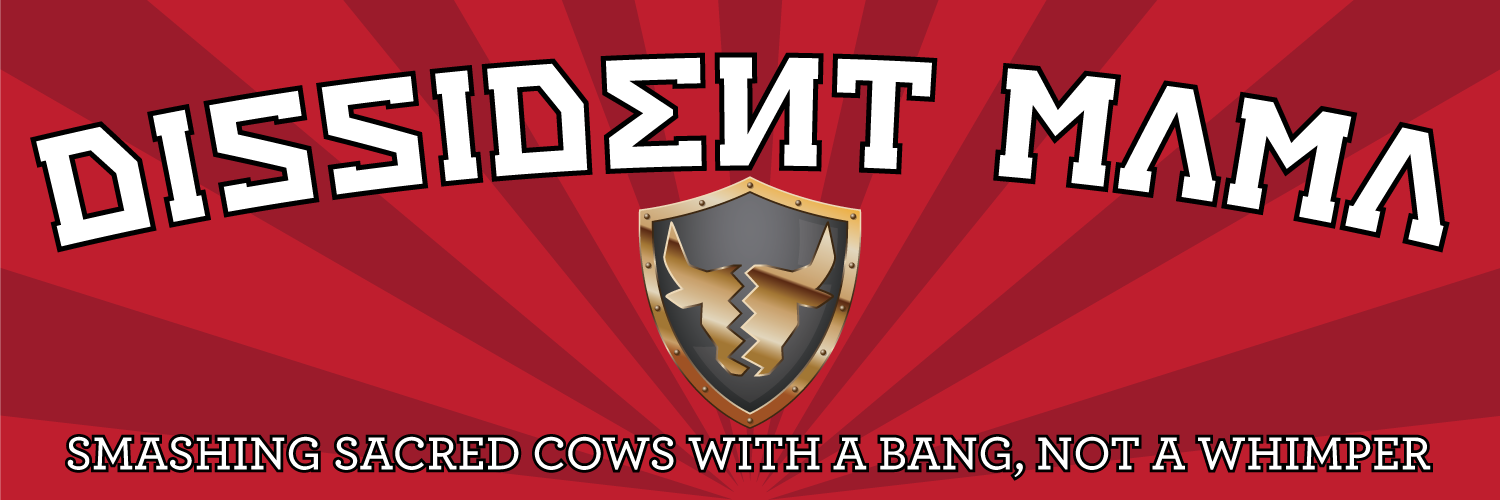
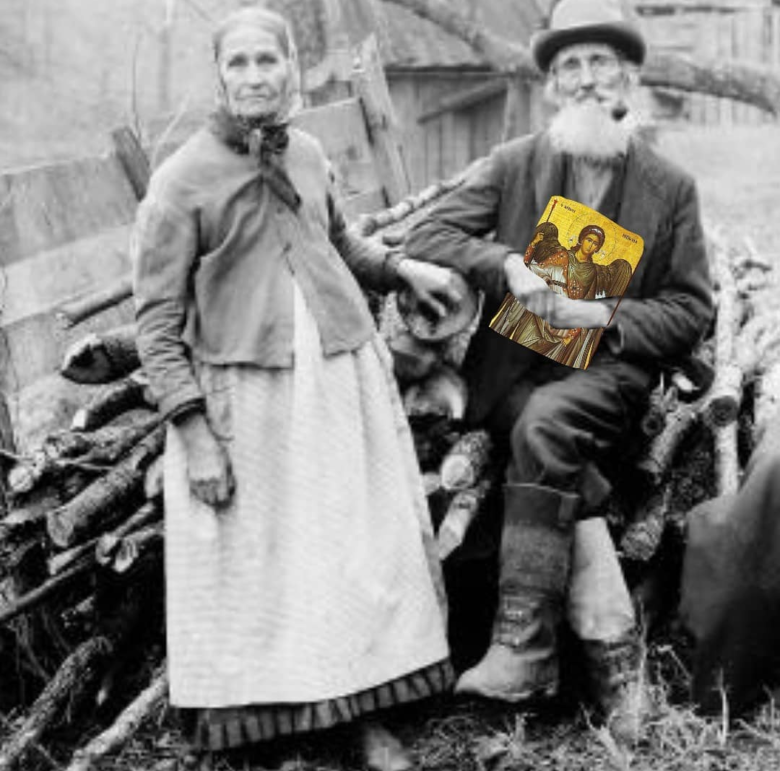

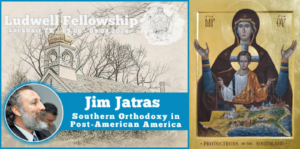
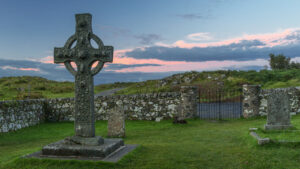
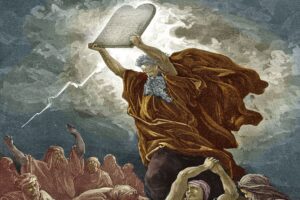
Comments
Being a stubborn, Canadian descendent of these stubborn Scottish people, I can say that what you say is very true. Unfortunately there are no Scottish turned Orthodox in my country, from what I can gather 🙁
All churches in my province are at 15% capacity max.
There are some stubborn Ukrainians way out in the rural areas, but the churches mostly only speak Ukrainian and no English.
Anyone who is blessed to go to a church where you can kiss an icon, please kiss one for me!!
Author
Wow, I will do that for you tomorrow on Holy Monday! Is Sarah your Orthodox name? If not, let me know and I will also be sure to add you to my prayer list.
How close are you to Hamilton? I just read and was blown away by the boldness AND love of Fr. Geoffrey Korz’s latest essay, “We must quite (not seek) the winning team.” He seems to be a true warrior for Christ and is an archpriest in the OCA up there.
Are there no ROCOR parishes operating “off the grid,” so to speak? That’s the safest bet around here in my neck of the woods. Or what about the Serbs? Those options may not always be in English, depending upon the parish, but here in the States, those are the jurisdictions that have been most steadfast in their “rebel spirit.” And if you can find a Serbian parish, sure, it may be in a foreign language, BUT … my guess is that they’ll be “old school” in their liturgical approach. Plus, they are typically such a friendly, hospitable, and joyful people, just like our down-home Scottish folk; you’d fit right in!
Thank you! No, I do not have an Orthodox name yet, I am still trying to get a hold of the local priest so I can someday join the church 😀
Author
Please don’t give up. And when you can’t make it to a church, read up on a saint or two (they’ve been through it all before), do daily Bible readings with help of an Orthodox Study Bible, listen to podcasts and lectures like Father Peter Heers @ Orthodox Ethox, Father John Whiteford’s “From the Amvon,” the Real Med White, Jay Dyer, and Metropolitan Jonah on YouTube, and pray, pray, pray (and get a good prayer book like Jordanville or my personal fave from St. Tikhon’s). You are not alone. 🥰
I love to read about the Saints! I found an app that tells you which feast day it is and what Bible passages to read. I also just got a book with some catechisms and another one with some liturgies in it. And I cannot get to the Easter Pascha thing this weekend, because only limited numbers of people are allowed, and they already signed up. But I am going to try to go the next weekend. Thanks a lot!
Serbian, eh? I am pretty far from Hamilton – it is sort of near Detroit and I am north of Montana! I live in the west and it’s mostly Ukrainians around here. My friend is Serbian but he lives back in Ontario, near Hamilton. I can look and see however!
Thanks for the tip! Sorry I have ADHD and got distracted from your message 🙂
Sarah, I will pray for you as well. Your Archbishop Gabriel, of Canada has been hanging out down here. We hillbillies have been able to snag him several times because Canada apparently won’t let him back in! I echo DM’s suggestions. Read the lives of the Saints. Don’t give up. Keep praying and keep seeking.
The Holy Council of the Elders of Possum Holler I reckon…
Author
I’ll take it! 🙂
Lol, sounds great!
Yes to the Serbs! Our Greek Parish just dropped the requirement to sign up and be “accepted” to attend liturgy, but all the rest of the requirements are still up, including masking children.
Just last month we finally got up the nerve to attend liturgy at the nearby Serbian parish. Even though the Slavonic /Serbian language complicates things, the beautiful church, liturgy, and welcoming parish have more than made up the difference. It’s amazing how the beauty and truth of Orthodoxy transcends a language barrier!
The church I plan to go to is either totally Russian or bilingual, I can’t remember. But I figured, I can read the liturgy in English and sort of follow along, at least it’s a real church, right? and I am even learning a little bit of Russian to make things easier. I believe most of the people who attend do not speak much English either…
Author
Yes and yes, Heather and Sarah! 🙌
Loved it!
Author
So glad you loved it. I did, too! Mrs. Olga is one fine Southern belle, ain’t she? 🙂